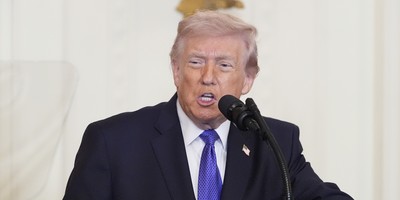Back in 2006, a World War II flying ace briefly made headlines once again. Students at the University of Washington decided to shoot down the idea of a statue to honor Gregory “Pappy” Boyington, the Marine aviator who earned the Medal of Honor by destroying 26 Japanese planes.
Columnist Michelle Malkin reported at the time that student senator Jill Edwards had said she, “didn’t believe a member of the Marine Corps was an example of the sort of person UW wanted to produce.”
Well, everyone’s entitled to an opinion.
But without men such as Maj. Boyington, the Axis powers may well have prevailed. And if they had, the world would be a very different, and probably much more violent, place. You see, the World War II generation not only prevailed over evil enemies, it also paved the way into our (mostly) peaceful present age.
The men of that generation didn’t predict or expect the peaceful age that developed, of course. Near the close of his book “Baa Baa Black Sheep,” Boyington noted he expected that future wars would be fought, and fought with nuclear weapons. And that seemed likely. No society in history, after all, had ever developed a potent weapon without deploying it.
Yet, under American leadership, the world decided to build but never use nuclear weapons. Americans fought hot wars in Korea, Vietnam and Iraq without resorting to nukes. We fought a Cold War with the U.S.S.R. and its proxies, also without resorting to nuclear weapons. Tens of thousands of Americans laid down their lives in “boots on the ground” combat while we kept our nuclear sword sheathed.
Recommended
And the results of American restraint keep rolling in. “The average annual battle-death toll per conflict in the 1950s killed almost 10,000 people; in the new millennium the figure is less than 1,000,” the U.N.’s Human Security Report noted last year. “Perhaps the most reassuring finding is that high-intensity wars, those that kill at least 1,000 people a year, have declined by 78 percent since 1988.”
The report credits the end of the Cold War and the demise of colonialism as key reasons that international violence is declining. Of course, the United States led the way to victory in the Cold War “without firing a shot,” as Margaret Thatcher put it.
As for decolonization, the U.S. pressed for this as well. American forces protected, rather than occupied, former foes Germany and Japan after W.W.II, allowing those former colonial powers to build thriving democracies.
The U.S. also assumed the military role that had been played by the British navy for years, keeping the seas safe from piracy. But it didn’t look to directly govern the rest of the planet, preferring instead to export its free-trade, democratic system. “Greatly increased levels of international trade and foreign direct investment have raised the costs of conquest and shrunk its benefits,” the Human Security Report puts it. Countries decided it made more sense to trade goods and services than to fight each other. Global wealth increased; global conflict decreased.
“Today we are probably living in the most peaceful moment of our species’ time on earth,” cognitive scientist Steven Pinker told Gene Healy of the Cato Institute.
There’s every reason to expect things to keep getting better, as long as the U.S. keeps promoting the policies our government has espoused for the last several decades: free trade, fair economic competition, market-based policies.
Nobody’s likely to build a statue to celebrate these virtues. However, maybe it’s time we should.

























Join the conversation as a VIP Member